A LEADING Labour politician has described the UK’s relationship with America as “one of our most essential” – and it’s unlikely to change regardless of who becomes President.
Jessica Toale, who is Bournemouth West MP and Parliamentary Private Secretary in the Foreign, Commonwealth and Development Office, was interviewed by BU journalism student Nadine Siad.
During a far-ranging interview – printed in full below – the MP gave her views on:
- the health of the ‘special relationship’ between the UK and US;
- the controversy surrounding Foreign Secretary David Lammy’s past comments about Donald Trump;
- The row over Labour volunteers helping the Harris campaign;
- The future of international security under Trump or Harris.
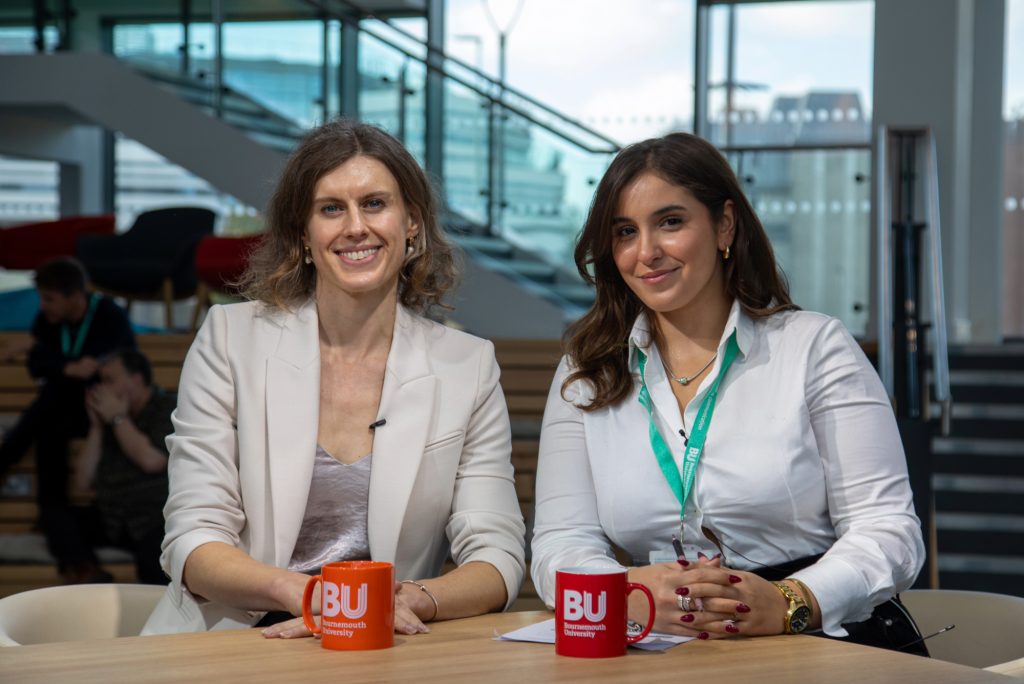
Here’s the exclusive interview in full
Nadine Siad (NS): Welcome, Jessica Toale. Thank you for joining me today to discuss the US election. It’s great to have you here, not just because you are the new Bournemouth West MP, but you also work closely with David Lammy, the Foreign Secretary, as a Parliamentary Private Secretary in the Foreign Commonwealth and Development Office.
I’ll start this interview with some general questions. Some of your Bournemouth constituents might be hearing this interview and wondering why on earth the US election is related to them and why it matters. What would you say to these people?
Jessica Toale (JT): Well, most people in the UK follow very closely what happens in the US. We have a very longstanding and deep relationship with the US. It’s often referred to as the ‘special relationship’. We have deep cultural ties with the US. We have deep economic ties with the US and a lot of our international action is also done in conjunction with the US, whoever is in power there.
I have a personal interest in it as well because I lived in the US for eight years and finished my schooling there. So I’ve always kept a keen eye on what happens in US politics, but also in economics and culture. And we live in such an interconnected world that what happens overseas affects us here in the UK as well.
NS: You mentioned the special term “special relationship’ which is often used to describe the cooperation existent between the United States of America and the United Kingdom. And that was a phrase coined by Winston Churchill in 1946. How would you describe this relationship today and how might it change with the future election?
JT: Well, I think it is still one of our most essential relationships, and that’s unlikely to change whoever is in the White House. We have for decades worked with leaders of different political parties, both in the UK and the US. And at the moment we are going through a sort of UK-US strategic dialogue, and it just goes to show how deep that relationship is. So, we talk about our cooperation on supporting the war in Ukraine, on supporting peace and stability in the Middle East and really pushing for a ceasefire in Gaza.
NS: Yes, we will come to that subject later…
JT: …Okay…yes, and, and in the Indo-Pacific on economic cooperation. So, that is such a fundamental relationship to our national security, our economic security, that it will always be part of our thinking as a UK government.
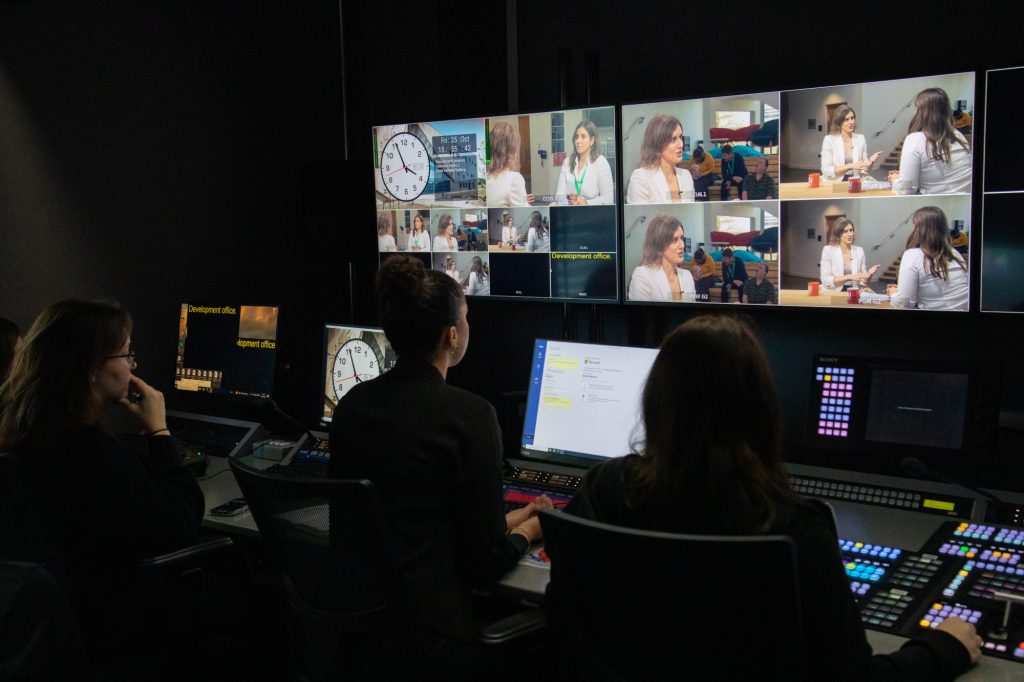
NS: Thank you for your answers. I would love to take a closer look now to the candidates and I’ll start with Donald Trump. Simple question. What do you admire about him? And what are your concerns about Donald Trump?
JT: Well, I suppose you could say that, I mean, Donald Trump certainly has tenacity. And whatever you think of him, he has been able to transfer from a business leader to somebody who has really hit the top job in politics. He has gathered support from across his nation, whether you believe or agree with his values and his viewpoints. And so that is in some ways very, very impressive, to have made that transition from business to politics and to have, you know, become the leader of the free world. Obviously, there are concerns around some of his viewpoints and some of his values. A lot of his rhetoric is quite inflammatory. There are concerns about how the impact that he might have on American democracy. But I think these are all things worth watching and things that we certainly will pay a keen interest here in the UK.
NS: Sure. Dishonesty is hardly new in politics, as you said, and the tenacity of Trump has shown that. Would you agree that his record has caused particular concerns about it? He lied and made more than 30,000 false and misleading claims when he was president in the White House. That’s according to the Washington Post. What is the government concern about dealing with someone like that?
JT: I would say what the government position is that whoever is elected in the US, it’s up to the US people. That is not something that we will interfere with at all, or have an opinion on. You know, it’s absolutely up to the US people, and we would say the same the other way around if it was an election here. We have to make it work whoever becomes elected in the US, whether it’s Trump or Harris. It is, like I said, one of our essential relationships and we are in the best possible position to make that work.
NS: Do you think if he gets elected there will be tensions between the UK and the USA?
JT: It’s possible, but like I said, we have to work with our closest allies and there will be many, many areas where we agree and we want to work together and we will always focus on those things.
NS: Sure. I’ll move on now to Donald Trump’s position on the Nato, which also has raised many concerns. The Nato remains reliant on the US military power to defend foreign threats, but under another Trump administration, the commitments to the Nato’s principle of collective security could completely wane. How worried are you that the US could leave the Nato? Do you think it’s possible?
JT: Well, I think we’re certainly thinking about the future of Nato and our own commitments within that. So, we’ve made a commitment here in the UK to raise our defence spending to 2.5% of GDP. That’s an increase from the 2% that we’re at the moment.
NS: You think we can afford that?
JT: I do. And that’s certainly the commitment. We’re also working more closely with our European allies to try to develop our defence capabilities in conjunction with them because we know what’s happening in Ukraine isn’t going to go away anytime soon. And so it’s certainly part of all of our thinking and how we both best utilize Nato as a defensive collective, but also the future of that institution as well.
NS: Do you think the world is safer under a Trump or a Harris presidency?
JT: Well, I don’t know. We’ll have to see!
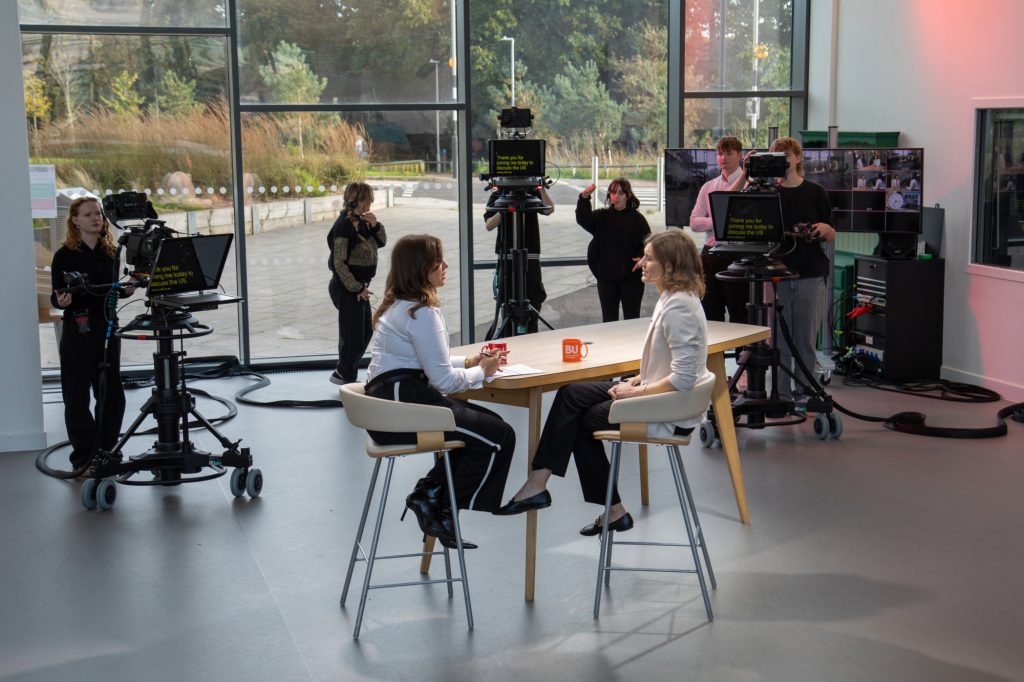
NS: (laugh). Thank you for answering that. So, I’ll discuss now the Foreign Secretary’s future relationship with Donald Trump. As you work closely with David Lammy, he has previously branded Trump – and I cite – a woman-hating Neo Nazi sympathizing sociopath. He also described Trump as a dangerous crown and a racist KKK and Nazi sympathizer. Do you agree with this appellation? Do you think this language is appropriate?
JT: I think lots of the things have been said about Donald Trump, and you’re right, there have in the past been tensions and incendiary words from our previous Prime ministers and those of us who might be in power now. But ultimately, like I said, we have to get past this because we’re talking about our closest and longstanding ally. And we have to make that work for our security, for the global security, for our economic freedoms. You know, we have been working with the US on developing our clean energy security as a core part of our national security and our future economic stability. And we’ve been doing that hand in glove with the US. Our clean energy mission here is really related to the US Inflation Reduction Act, and those things won’t just go away. Those are things that we will continue to work on with the US and we’ll find a way through that.
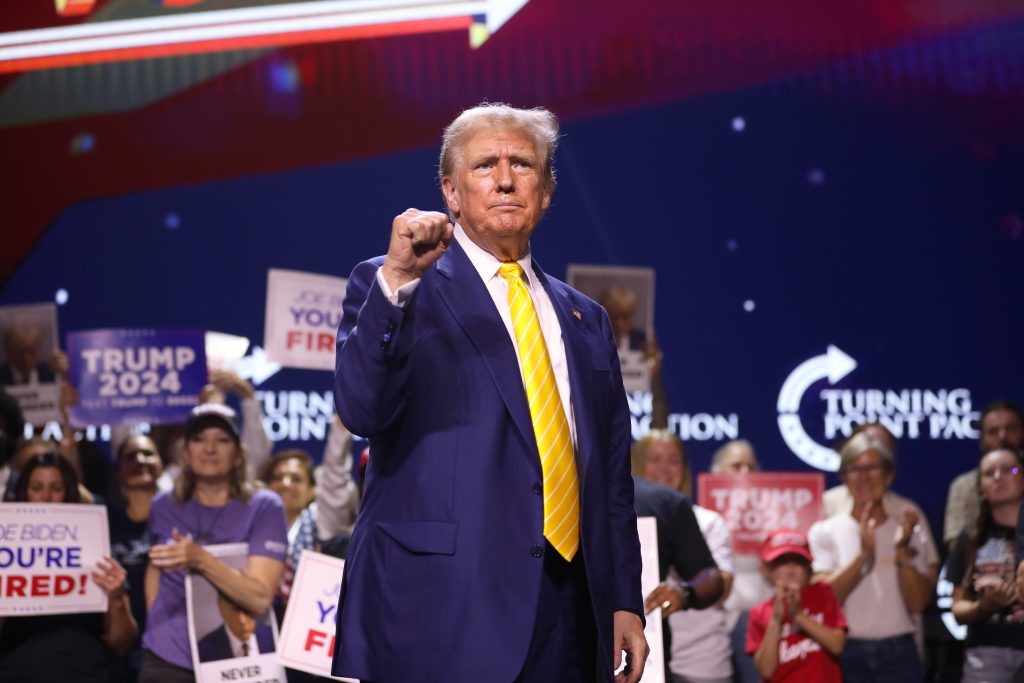
NS: Thank you. As a closure for the Trump chapter of this interview, the Trump campaign group claimed that the Labour Party, and I cite, is an extreme left party. What is your response to this appellation?
JT: Well, I think many people in the UK wouldn’t call the Labour Party an extreme left party. And I understand there’s been some confusion or misunderstanding here, but it’s very normal for people in their free time as volunteers to go campaign in other countries and political parties here do it and political parties in the US do it. So, you know, I don’t expect that to cause any issues down the line.
NS: The Labour Party has been sending volunteers to support Kamala Harris for her campaign…
JT: Well, people have been going in their free time to do that…
NS: Okay…
JT: …And they happen to be Labour activists or Labour party members.
NS: Does that mean the position of the UK is definitely supporting Kamala Harris and the Democrats?
JT: Well, the Labour Party is a sister party of the Democratic Party. So, it would be unusual if people didn’t go to support, like in many other elections. I know I have friends who are members of the Labour Party who have gone over to support the PS (Socialist Party) in France or the SPD (Social Democratic Party) in Germany. It’s a very normal thing to have that kind of sister party transfer, and of course it’s a more natural fit.
NS: Well, might it further damage the relationship with the Republicans if they win?
JT: Well, again, I think we have to see, because what I would hope is that in the interest of our shared prosperity, our shared national security, we’d be able to get past some of these things that happen in the election.
NS: Would you have gone as a volunteer?
JT: I think it would be fascinating to see how American elections run. They’re very different from UK elections. Much more high budget as you might know. We’ve got very strict restrictions in the UK on how much money can be spent in elections. And I think the US operation is really, really impressive. The amount of volunteers they get in, the way they use digital media, all parties in the US. So, I think it would’ve been very interesting to have gone and see what impact those things have and see if any lessons we could learn to bring back to our campaigns here.
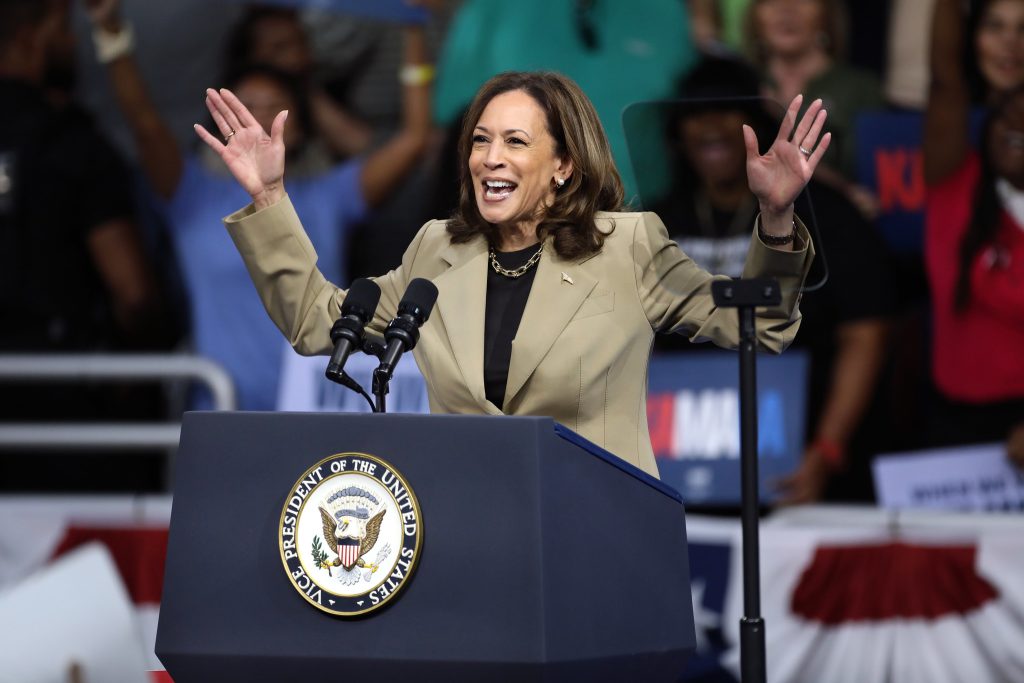
NS: Thank you for answering that. I would like to move on now to a topic that you brought up earlier. The Ukraine. Harris was speaking at a campaign event in Michigan recently and claimed Trump, quote, “would have Ukraine surrender its fight” and “Putin will be sitting in Kyiv”. Do you agree with her?
JT: No. I think there’s lots of consternation and lots of things we don’t know yet. You know, the UK and the US have continually been supportive of the Ukraine. Its sovereignty is something that we are very steadfast on. We’ve both invested a lot of support to the Ukraine, both military and financial. And I believe it’s something that whoever is in administration would continue to fight for.
NS: Really bluntly, do you think Ukraine would be safer with Trump or Harris?
JT: Well, I think there’s a concern over internally the support that we can continue to give and I would hope that both candidates take this very seriously because we’re talking about the international rules- based order here and it’s something that’s so fundamental to our worldviews as two countries.
NS: Let’s talk now about the Middle East crisis which is also current right now. So, the single greatest goal of diplomacy according to the Biden administration has been to get a ceasefire to hostage release in Gaza. But unfortunately, the attempt to diffuse the conflict and broker a ceasefire has deluded Biden’s administration at every turn. Does the Labour Party have any hope that we can manage to get a breakthrough to this crisis?
JT: We certainly have the hope and we think it’s absolutely imperative that we stop the fighting. That’s why, you know, within the first few days of our new Labour administration, we called for an immediate ceasefire. That’s why we’re working with US partners. We’re doing what we can to support the ongoing peace talks that the US is leading alongside Egypt and Qatar to get all parties to the table. We really want to see a de-escalation in the region, which is why we were the first G7 nation to call for a ceasefire in Lebanon as well. And we’ve really shifted our approach to it. We’re being as supportive as we can both publicly and behind the scenes where we have the opportunity to do so.
NS: Would you agree with those who say that the USA hasn’t achieved anything yet in this crisis?
JT: Well, we don’t have the ceasefire yet, so of course we need to do much more. But diplomatic negotiations often do take time. We are doing what we can to put pressure on the Israeli government to open up humanitarian routes, to make sure that we’re funding UNRWA (The United Nations Palestinian refugee agency) and UNICEF and a number of other organizations within it to support the peace talks to happen, to try and de-escalate as much as we can. But again, you sort of need the right diplomatic conditions and the right timing, the right conditions to be in place to be able to push some of these through. And it just takes time to do it. And we will continue to push where we can to get a breakthrough there.
NS: What kind of steps will the UK take after this election to push the ceasefires?
JT: Well, like I said, we’ll support our US counterparts who are leading on the negotiations. We will continue to do things like we’ve been doing, calling for the ceasefires, making sure that humanitarian aid is getting as much of an airing as it can do, working with our partners at the UN. We are also supporting the ICC (International Criminal Court) and ICJ (International Court of Justice) processes to make sure that international humanitarian law isn’t being breached and that process has got proper airing. So, I think we will continue to do all of those things. We have also said we do want a sovereign Palestinian state, and that needs to be part of a peace process towards a two-state solution. And we are absolutely steadfast in that commitment.
NS: Thank you for answering that. I’ll move on to some final questions and I’ll turn to economics. First, so no trade deals came with the last Trump administration and Biden stalled the UK trade deals too. So, who is the best for securing trade deals, Harris or Trump?
JT: Well, I think, again, we have to see…
NS: What’s your personal opinion on that?
JT: I think we were sort of lied to in the UK after Brexit about the ease of which we could get a trade deal with the US and the last administration tried quite hard to get a set piece trade deal. I think the things that I’m excited about was the things that I mentioned, the cooperation on technology, the cooperation on clean energy, looking at how we can support our mutual economic aids. And maybe we need a trade deal for that. Maybe we don’t. Maybe there are areas of cooperation that we can look at. But these are all part of the discussion in the strategic dialogue that we’re having at the moment. And I believe truly that those will continue whoever is in the White House at the moment. Obviously, we saw in the last Trump presidency a bit more of an isolationist stance to the world and we obviously need to be prepared for that should he become president. But I don’t think it would stop the efforts being made on both sides to create good economic conditions for both parties.
NS: Thank you. I’ll move on to the climate change emergency. On your website, one of the five key points of your campaign and your slogan is ‘protecting our environment’…
JT: Yes
NS: So, when he was president, Trump rolled back a hundred of environmental protections including the withdrawal of the Paris target for climate change and also the carbon dioxide emissions from cars. So, who will be the best for the climate issue? Trump or Harris? Or would both of them be as bad as each other?
JT: Well, like you said, there were serious turnbacks under the last Trump administration. I don’t know what the policies he wants to put in place are this time. Equally, I think Kamala Harris will probably continue on the kind of innovation reduction act approach that the Biden administration has done. I think what’s exciting in that agenda is that the UK has really set out that it wants to be a leader on climate change, both internally and on the international stage. And one of the really exciting things was that David Lammy made it part of his first ever speech as Foreign Secretary to talk about climate change. And it was hosted at Kew Garden. It was a really clear signal. And I think that’s where maybe we can be a really positive partner to the US to push forward why the clean energy agenda, why protecting our natural environment and biodiversity, is so important. Not just to the future of our planet, but also to get down our bills, to create jobs, to create greater cooperation. And currently we are working with the US in a number of international forums to ensure that climate finance is getting to the places that need it to ensure that the G7 is thinking about its role as an international climate leader. And again, I hope whoever is in the administration there, that type of stuff will continue.
NS: Who do you think will be the best to continue with you on these steps?
JT: Well, who do I think will be the best? I think I’m going to have to go back to my answer, which was it’s up to the American people. They absolutely need to decide whoever is their president. And it’s not really my place to say who I think would be best for them.
NS: That’s fine. I’ll end this interview with a question. If Donald Trump was sitting here now as the new president of the American United States, what would be the thing that you urge him to consider as a new president?
JT: Oh, there’s so much. You know, I think ultimately it would be about ensuring that we continue to deepen and strengthen that special relationship that we have. Trump has lots of ties to the UK and I think he understands that viscerally. But trying to tease out, you know, where are those areas that we can work together to really create positive impact in the world. I think those are the things that I would want to raise with him if he were sitting in the seat.
NS: Would you raise any different concerns to Kamala Harris if she wins the elections?
JT: No, I think it would be, you know, as a starting point, we want to lay that groundwork and we want to continue the good work that’s been done under the last administration. I think that would be the focus.
NS: The Prime Minister has stated that he would work with whoever the American people elect and emphasizes the UK and the US special relationship over ideological ties. But it’s difficult to believe that Keir Starmer doesn’t have a personal opinion or doesn’t have any preferences. That’s just human nature. I would come back to you. What would be your preference for these elections?
JT: I know that it’s human nature to have preferences, but ultimately you have a responsibility in government to act on the behalf of the best interest of your people. And that’s why we think it’s so important to work with whoever is in the administration and ultimately whoever it is, we’re going to have to make that work.
NS: Do you have any prediction for the winner?
JT: I don’t actually. I think it’s too close to call at this stage. It really looks 50-50 at the moment. Pennsylvania was the state that I used to live in. It’s always the one that comes down to the line as the key swing state. So I’ll certainly be paying attention to what’s going on in Pennsylvania over the next few weeks.
NS: Thank you very much Jessica. Many thanks for your time and thank you for this interview.
JT: Thank you so much.
Featured image courtesy of Gage Skidmore
